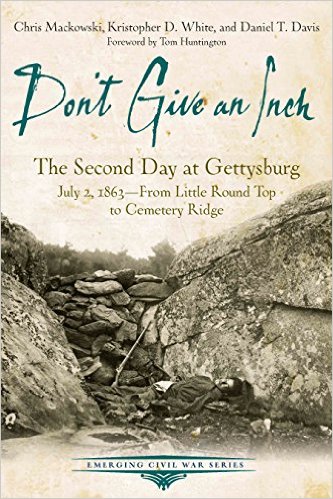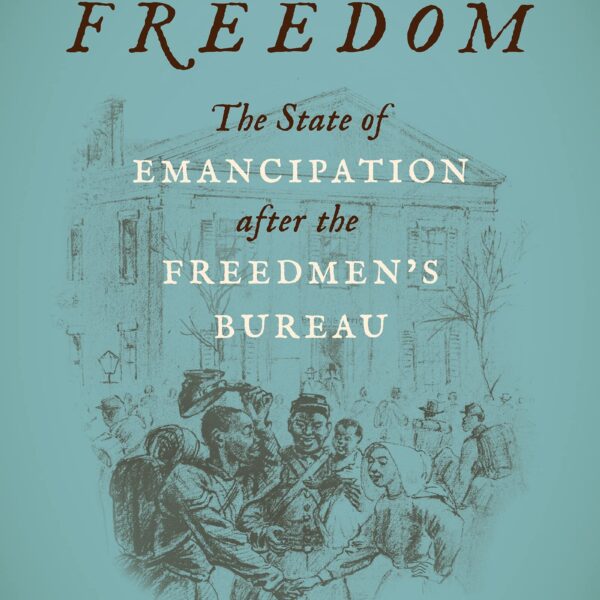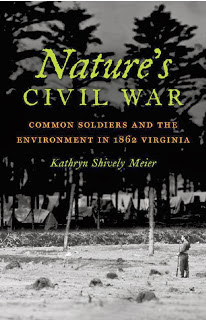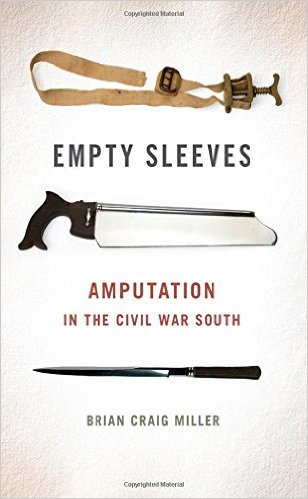The Immortal Irishman: The Irish Revolutionary Who Became an American Hero by Timothy Egan. Houghton Mifflin Harcourt, 2016. Cloth, ISBN: 978-0544272880. $28.00.
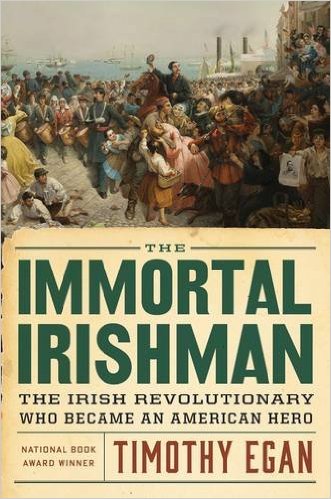 Half-truths about an historical figure can lead to misconceptions about his or her deeds. Perceived misadventures during a certain period of one’s life may be interpreted differently when a more expansive portrayal comes into view. A case in point is the conventional image of Thomas Francis Meagher, an Irish immigrant who fought for the Union during the Civil War.
Half-truths about an historical figure can lead to misconceptions about his or her deeds. Perceived misadventures during a certain period of one’s life may be interpreted differently when a more expansive portrayal comes into view. A case in point is the conventional image of Thomas Francis Meagher, an Irish immigrant who fought for the Union during the Civil War.
Prior to release of Timothy Egan’s biography of Meagher, the enduring perception of this Irish Brigade commander was one of a moderately successful general whose accidental death at a young age resulted from an alcoholic bender. Egan endeavors to amend the record about a man who left a lasting impression on three continents through talent, initiative, and dedication to his causes.
Egan applies his own Irish heritage to the task of resurrecting Meagher from the muddle of misunderstanding and helps to place him on a pedestal. This story is as much about being Irish as it is about a stellar Irishman who made his mark in Ireland, in the penal colony of Tasmania, and in America.
Meagher had the misfortune to be born and raised in a land that had been flattened under the heel of British sovereignty. The scion of a well-to-do family in Waterford, he grew to maturity during the worst years of the Great Irish Famine of the 1840s. He rebelled at the callousness and indifference of the ruling English as millions starved to death or fled the country as part of the Irish diaspora.
As an organizer and leader of Young Ireland, an insurrectionary movement, Meagher employed his talent as an orator and poet to incite the Irish populace to rise up in protest. For this he endured arrest, conviction, and transportation to an inhumane penal colony halfway around the world in Tasmania. The author weaves a vivid tale of life in this barbaric and hopeless environment designed to break the will of even the most ardent insurgent.
Through self-motivation and timely assistance from sympathetic collaborators, Meagher miraculously escaped confinement and eventually made his way to America. As Egan describes, freedom for Ireland and her people was never far from Meagher’s mind; he sought opportunities to motivate Irish immigrants to seek political power and gain military experience that could eventually lead to the attainment of that ultimate objective—Irish independence.
Rather than as an intransigent insurrectionist, Egan portrays Meagher as a loquacious individual who exuded joie de vivre. He adapted to his disparate environments in Ireland, Tasmania, and America by using his imagination, reading classic literature, writing poetry, and, true to the Irish character, imbibing while socializing.
An anomaly for an Irishman, Meagher was a Democrat who joined the Union army to restore the Union, but he also supported President Abraham Lincoln’s Emancipation Proclamation. He used his powers of persuasion, especially early in the Civil War, to encourage large numbers of Irish to fight on behalf of the North.
Egan relates Meagher’s steadfastness as commander of the Irish Brigade—steadfastness in the face of the mass slaughter of his men in battle after battle. The commanding generals seemingly employed the Irish as a sacrificial battering ram because of their dependability and willingness to march directly into an inexorable firestorm.
After the size of his brigade shrunk to a mere 500 men and the Union army suffered humiliation at the Battle of Chancellorsville in May 1863, Meagher had had enough. He tendered his resignation, although it was not accepted. Instead, he received an assignment in Tennessee, the backwaters of the conflict.
After peace was restored in mid-1865, Meagher experienced a dramatic shift in lifestyle. Appointed Secretary of the Montana Territory with the anticipation of eventually becoming the governor, he set off on a lengthy, arduous, and circuitous trip down rivers and over mountains to Virginia City, the embryonic territorial capital.
Egan narrates a tale of obstinacy and intrigue on the part of local Republican businessmen. These men undermined Meagher’s efforts to expand opportunities for a growing population that came west in search of a better life; they formed a Vigilance Committee that terrorized the community and arbitrarily executed anyone they viewed as obstinate or distasteful.
Meagher envisioned Montana as a potential New Ireland, where immigrants to the United States could at last find a place to live and prosper in freedom. These vigilantes, however, viewed Meagher as a serious threat to their enterprise. Their leader Wilbur Sanders stated, “We must put a quietus on the doings of this pretender.”
The exuberant and promising life of Thomas Francis Meagher would come to an end at age 43 in the wilds of Montana when he fell from a boat while intoxicated—a purported accidental death. Egan completes his narrative with a clinical examination of the facts of the case. He provides evidence that Meagher’s death, rather than accidental, was planned and carried out by his enemies.
Although he died in 1867, Meagher established during his lifetime a standard for those who followed and carried the torch for freedom. The Irish Free State was established 55 years later in 1922. However, in 1906, the citizens of Montana honored Meagher with an equestrian statue that included excerpts from a speech he gave in Ireland in 1846, in an “attempt to rouse the starving to resistance.”
Timothy Egan has achieved his goal in amending the historical record about an honorable man who had high hopes and ambitions for his people. While Meagher has not been adequately recognized for his service during the Civil War or for his steadfast commitment to Irish independence, Egan’s biography serves as a eulogy to his lifetime of achievements. Meagher’s story is told with style, objectivity, and admiration.
Thomas J. Ryan is the author of Spies, Scouts, and Secrets in the Gettysburg Campaign: How the Critical Role of Intelligence Impacted the Outcome of Lee’s Invasion of the North, June-July 1863, recipient of the Bachelder-Coddington Literary Award for 2015.

